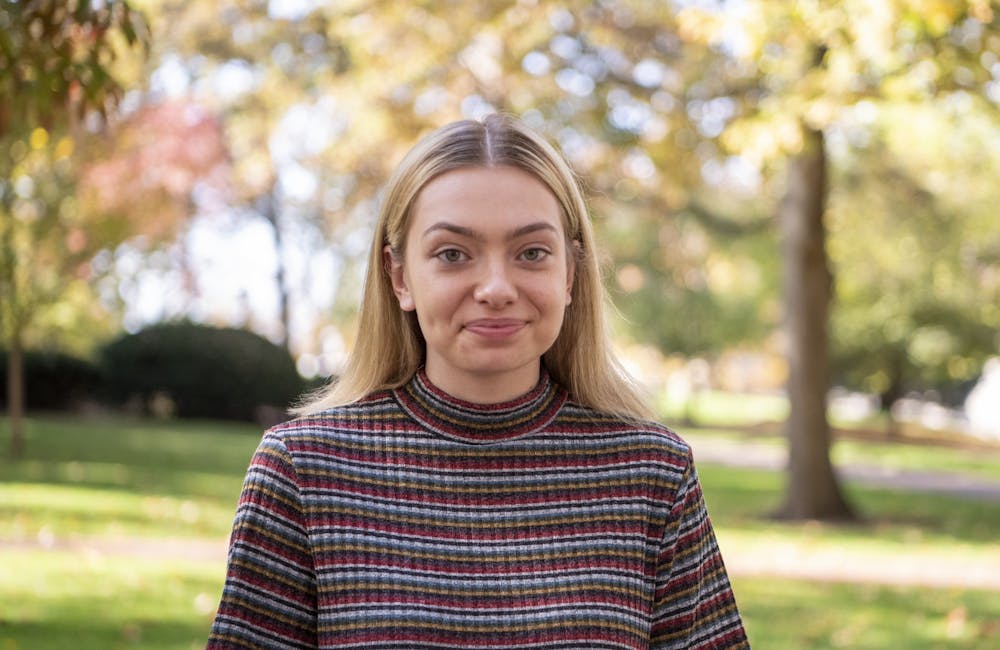On fashion’s most important night of the year, the Met Gala, a group of Black Lives Matter protesters were arrested just outside of the event. The protest was led by a political justice group named #FireThemAll, which describes itself as an “autonomous group of NYC abolitionists who believe that policing does not protect and serve communities.”
A flyer from the justice group said the group’s objective was to protest why the New York City Police Department has an allocation of $11 billion per year when the money could be going to support Black and other minority communities. Numerous clips of photo and video show NYPD officers tackling citizens to the ground while making arrests.
You may or may not have heard about those protests because of the little news coverage it has received in the past week. The protests did not fit neatly into the narrative of the Met Gala’s “glitz and glamour,“ and Black Lives Matter is no longer considered “trendy news coverage” by media outlets.
In May 2020, protesters took their outrage to the streets following the murder of 46-year-old George Floyd. News coverage of people murdered by police brutality, Black Lives Matter protests and national racial injustices was produced all day, every day. Yet, after the Derek Chauvin trial, it had seemed as though there was nothing more covered in the media. Even though coverage had stopped, protests and injustices didn’t.
The job of a journalist is to act as a gatekeeper; we must determine what information is most important and how to relay it to the public. I understand we cannot always feature every protest, injustice and issue that goes on in the world. However, we cannot take those injustices and treat them as trends. It’s easy to get caught up with what’s shining right in front of us, like the Met Gala that night, but it’s essential that we examine what’s happening beyond the curtain.
The issue of trendy news coverage does not just apply to Black Lives Matter. Another recent example includes the death of Gabby Petito. The 22-year-old’s death was determined a homicide, and her boyfriend, Brian Laundrie, is a suspect in the case.
News outlets and users on social media have been treating that case as if it’s a movie, obsessing over the disturbing details of the case. The couple was on a cross-country road trip together when Petito stopped communicating with her family. Video was also released showing Utah police stopping the couple after a witness reported Laundrie slapping Petito.
It’s easy to get hooked on the details of big cases like those. However, this isn’t a trend. This is someone’s life. Both media companies and social media should not be treating Petito’s case like a trend. However, journalists also need to call attention to issues that deserve just as much coverage.
In Wyoming, where Petito reportedly disappeared, 710 Indigenous people were reported missing between 2011 and 2020. A report published by Wyoming’s Missing and Murdered Indigenous People Task Force found 85% were kids, and 57% were women. Similar to the protests outside of the Met Gala, those missing people were given very little media coverage.
This comparison directly relates to “missing white woman syndrome,” which occurs when media outlets provide a lot of coverage on missing white women, but do not provide the same for women of color. Because a missing white woman, who was allegedly murdered, is more “entertaining” than Indigenous people who went missing, the news is going to focus on what is popular.
As journalists, our job is to provide a voice for those who do not have one. That doesn’t mean providing someone a voice for a week. It means consistently giving coverage to people who need it. There must always be a balance, but that requires all facets of an issue to be offered proportionate representation.
Just like journalists, the public cannot keep treating people’s lives as a trending topic, only to be forgotten the next day. If issues and injustices went away that easily, we wouldn’t need news coverage to begin with.
Hannah Campbell is a sophomore studying journalism at Ohio University. Please note that the views and opinions of the columnist do not reflect those of The Post. Do you agree? Tell Hannah by tweeting her at @hannahcmpbell.






